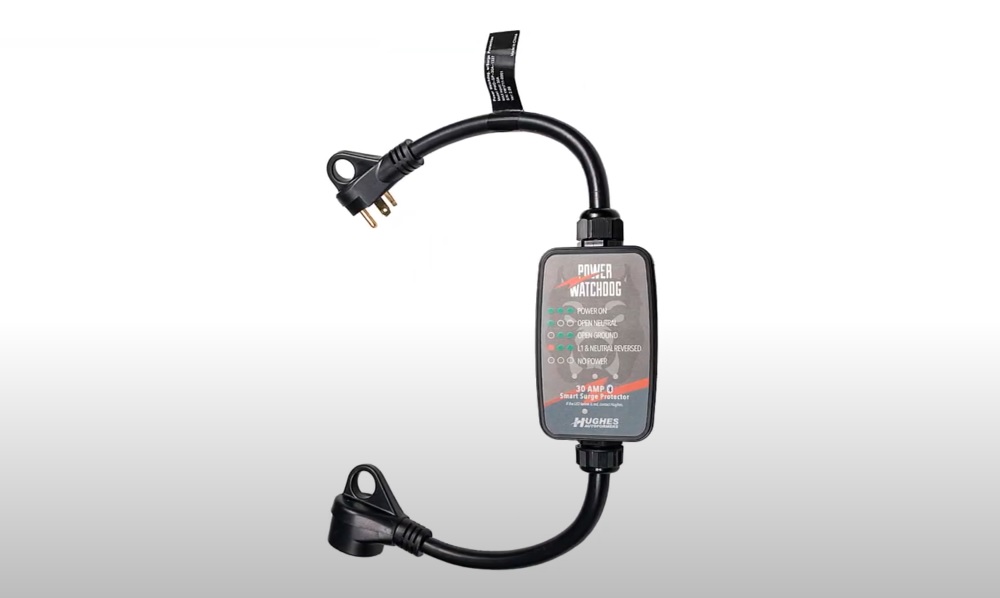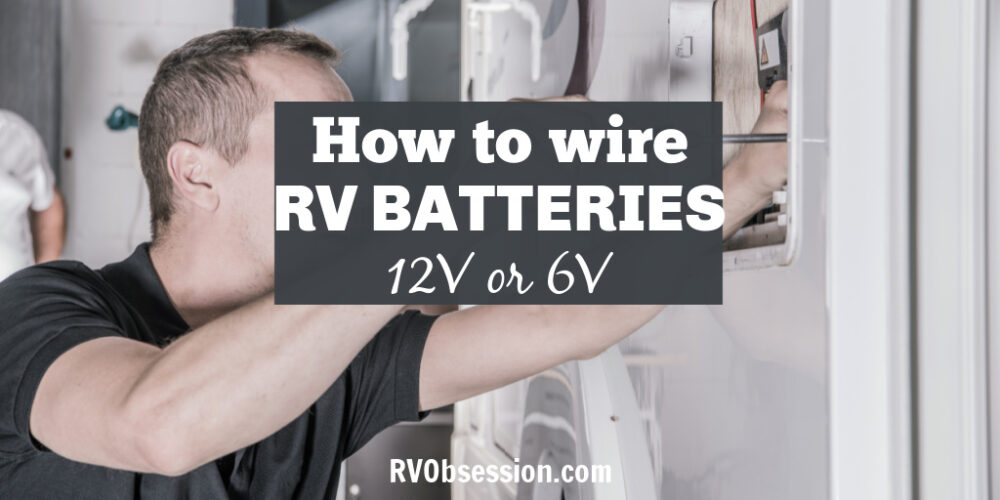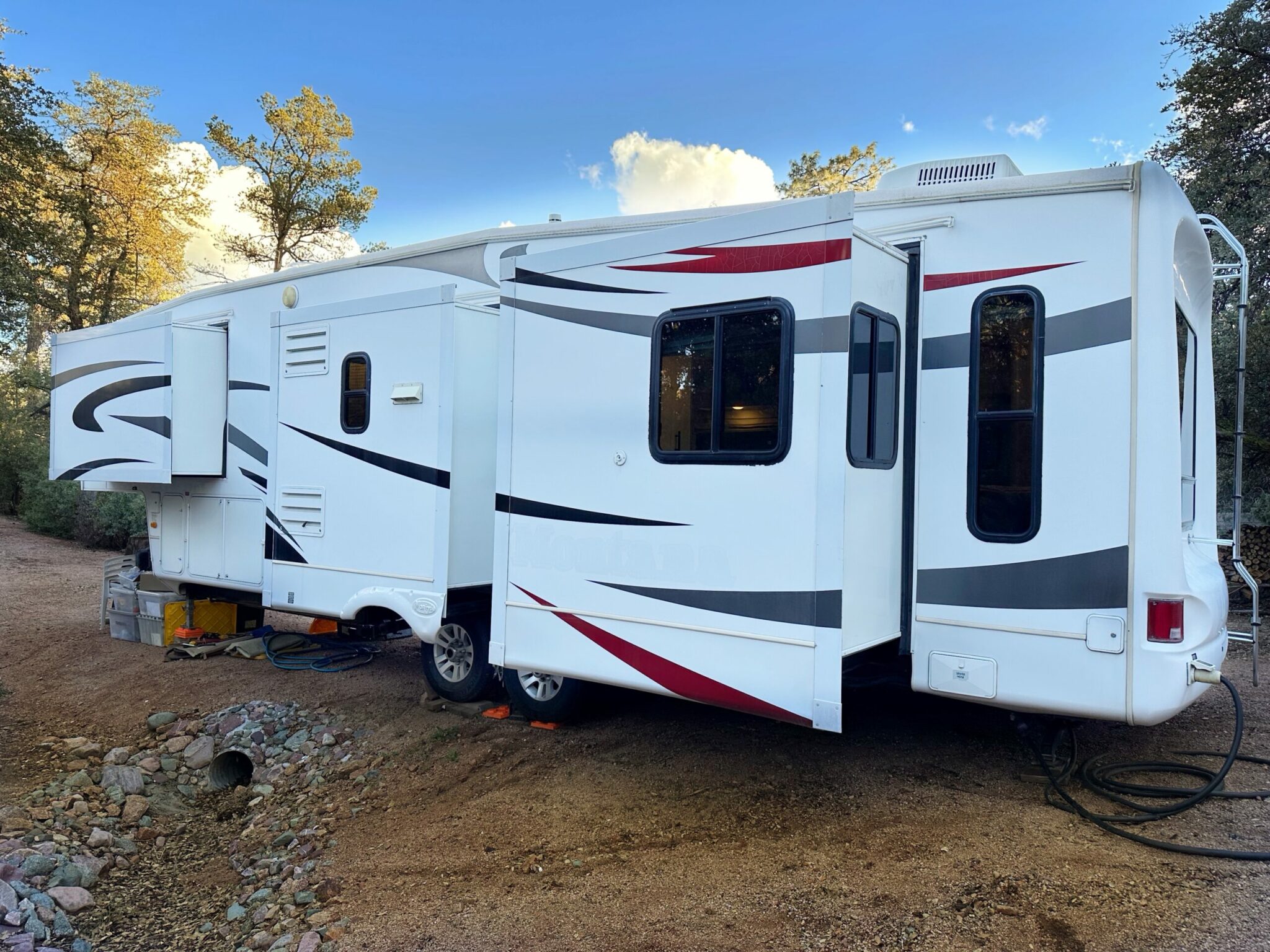Finding the best RV surge protectors
This post may contain affiliate links. See our privacy policy for details.
Whether you live in your RV or motorhome full-time or take it out on the weekends during the summer, you’re going to want to make sure that you have access to power in order to get the most out of your time there. No matter how “connected to nature” you may be wanting to get, chances are you’re probably still traveling with some great bits of tech.
You’ll probably still have your smartphones or laptops and kitchen appliances or entertainment system.
Whatever you’ve decked your RV out with, you’ll want to make sure that they are able to run properly without risking any of your other equipment. That’s where a good RV surge protector comes in.

What Is A Surge Protector?
A surge protector is an appliance or device that protects your electricals from voltage spikes that might occur in alternating current circuits and cause a black-out, or in other cases blow the fuses in your appliances.
A voltage spike happens when there is more electricity surging through the outlets than they can manage – think of it like trying to push too much water through a hose with only a tiny opening. Eventually, the hose is going to burst and probably cause some damage as well.
So basically, a surge protector helps prevent this from happening and protects your equipment from any surges or spikes.
A surge protector made specifically for an RV or motor home can come in both 30 amp and 50 amp varieties so that you can match it to your RV’s power level. These mediate the electrical current coming out of the shore power hookup that you’ve connected your vehicle to at your current campground.
An RV surge protector can come as either a hardwired unit or a portable one, depending on what kind of convenience you want from the product. A hardwired unit is great because you can just have it installed and then it gets to its job with no problem and you don’t have to think about it again.
A portable unit could be better for you if you want to be able to take it from RV to RV with you if you happen to upgrade more often or use different vehicles for different situations. That said, a portable surge protector comes with the chance that it could be stolen.
What’s a pro for one kind of surge protector is basically the con of the other, so it’s up to you and your situation to decide what’s going to work the best for you.
Although hardwired units are typically more expensive than the portable options, they’re a great piece of kit to get as a kind of insurance if you already have your own vehicle, or if you’re planning on renting your RV out to other users.
If you rent RV units yourself and go from rig to rig, then having a portable surge protector is going to ensure that you don’t accidentally do any damage to the RV that you’re renting. That said, even high-end portable units can go for over $100.
However, it’s certainly more affordable to get a decent surge protector than to buy a whole new electrical system for the rig. Therefore, surge protectors are seen as an affordable insurance policy against the damage that voltage surges or spikes can wreak.
The best surge protectors in the industry
When looking for the best surge protector you’re probably going to come across these three names more often than anything else, those being Progressive Industries, Camco, and Hughs Autoformers.
The reason that these come up so often is that they are effective and offer a range of different camping equipment and affordable prices that should be able to fit into any camper’s budget.
Progressive Industries
This company focuses primarily on RV surge protectors, and they have a wide range of great products guaranteed to suit whatever kind of camper you are. This company offers both portable and hardwired units that will keep your electricals safe, regardless of how you start using your equipment.
Their units are a touch more expensive than other competitors’ equipment, but considering their niche in the market you can pretty much completely rely on their expertise for keeping your RV’s electrical equipment safe and efficient.
Camco
This company is one of the most notable camping equipment companies in the industry and for a good reason. Their equipment is affordable and effective, which makes it easy to see why it’s a favorite of many camping enthusiasts. Camco’s range of RV surge protectors is only the portable kind which makes them easy to transfer across different vehicles.
Some of them even have analytical tools included within them that let you see more information about everything that’s going on with your power connection in real-time.
Camco 50amp RV surge protector

Camco 30amp RV surge protector

Hughs Autoformers
There are two primary focuses that this company leans into, voltage boosters and surge protectors. What a great combination, given that the only safe way to install and use a voltage booster is to also have a surge protector. Otherwise, you risk doing some damage to your system by pushing too much electricity through it.
So not only could you pick up a surge protector from Hughs, but alternatively you could buy an autoformer, a product that integrates both functions of voltage boosting and surge protection into one bit of equipment. You can boost your output whilst also keeping your system safe.
Hughes Autoformers 50 amp RV surge protector

Hughes Autoformers 30 amp RV surge protector

Surge Protectors Frequently Asked Questions
This article has broken down the primary types of surge protectors that you can find on the market as well as some of the best companies in the industry that create the best surge protectors. But it’s natural to still have some questions before you commit to buying just one.
So let’s go over a few frequently asked questions in order to put your mind at rest and help with the decision-making process.
Can You Use A 50amp Protector On A 30amp RV?
You really shouldn’t if you’re actually planning on using equipment that’s going to take you to 50amps or potentially over. A surge protector is supposed to mediate the electrical current in case a spike or surge is going to push the capacity over your RV’s needs.
If you’ve put a 50amp surge protector on a 30amp RV then the device isn’t going to kick in at 30amps, but at 50amps instead. This would still completely fry your electronics, so it’s not really going to do you any good to get a surge protector that supersedes your RV’s potential.
The other way also isn’t great, as installing a 30amp protector on a 50amp RV is just going to leave you short 20amps, and you’ll miss out on potential functions that you would typically get, and potentially paid a premium for.
Instead, you want to ensure that you know how many amps your RV uses and get a surge protector that matches.
Do I Need A Surge Protector?
The simple answer is no. It’s not a legal requirement, and chances are that you’ll be fine without one. Until you’re not. And if you end up suffering a power spike or surge whilst in your RV you could end up completely frying all of your cool equipment.
You don’t need a surge protector the same way you don’t need to lock your front door on a night time. Sure, the chances of a burglar trying your door are low, but it’s never impossible. And the damage that can be caused on the off chance that a ne’re-do-well does come sneaking around is so great that it’s worth taking the extra precaution, just in case.
Considering that a surge protector not only protects your belongings but your rig as a whole, it is, in my opinion, worth stretching your budget just that little bit further in order to properly secure your RV and equipment.
What is the Safest RV Surge Protector?
There’s no right or wrong answer for this one to be honest. The best or safest RV Surge Protector is one that works and suits your needs. The only wrong surge protector is one that you’re not using properly, other than that you’re pretty much set. Even a cheaper one is better than not using anything.
Always check the user reviews before purchasing a unit, and make sure that you’ve done your research into the company and the warranty options, including deciding exactly what it is that you’re looking for out of a surge protector.
For example, you need to know what voltage your RV uses, and you also need to know whether a portable or hardwired unit is going to be the most suitable.
Final Thoughts
Whatever type of surge protector you decide to get (and I hope that this article has convinced you to get one), you going to be doing a great service for your vehicle, and the many more functions that you’re going to be able to confidently get out of it, without worrying about accidentally causing a surge.

I love RVing! I share about our journey around Australia, how we came to do this trip, all the planning involved, and snapshots of what life on the road is like.









